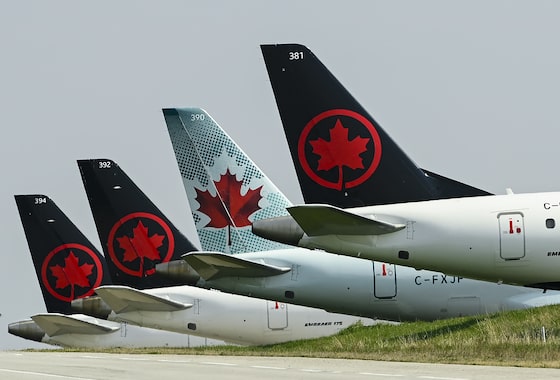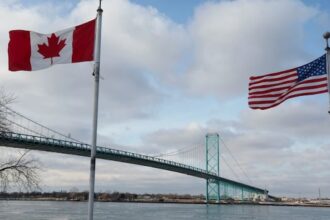The simmering labor dispute between Air Canada and its flight attendants reached a critical juncture yesterday as the Canadian Union of Public Employees (CUPE), representing over 9,500 cabin crew members, formally requested federal conciliation assistance after months of stalled negotiations.
The unusual step signals growing frustration among flight attendants who have been working under an expired collective agreement since March 31, with negotiations that began in January yielding little progress on key issues including wages, scheduling, and working conditions. The request places additional pressure on Canada’s largest airline at a time when the aviation sector continues to navigate post-pandemic recovery challenges.
“We’ve encountered significant resistance from Air Canada management on fundamental issues that directly impact the wellbeing of flight attendants,” said Wesley Lesosky, president of CUPE’s Air Canada component, in a statement obtained by CO24. “After months of good-faith bargaining that has resulted in minimal movement on critical concerns, we require intervention to reach an agreement that respects the essential role flight attendants play in airline operations and passenger safety.”
The federal labor minister now has 15 days to appoint a conciliation officer or conciliation board, initiating a process that typically lasts 60 days, potentially followed by a 21-day cooling-off period. This timeline places possible job action, should an agreement not be reached, squarely in the busy fall travel season.
Air Canada responded with measured language, stating they remain “committed to the negotiation process” and “confident that mutual resolution can be achieved through continued dialogue.” However, industry analysts note that the airline’s recent financial performance improvements may complicate wage discussions, as flight attendants seek to recover ground lost during pandemic-era concessions.
The dispute highlights broader tensions in Canada’s aviation industry, where major carriers face increasing pressure to control costs amid fierce competition from discount airlines while simultaneously addressing employee demands for improved compensation following years of pandemic-related sacrifices. According to labor relations experts, the outcome of this high-profile negotiation could influence labor relations across multiple Canadian transportation sectors.
For Canadian travelers, the development introduces uncertainty into fall and winter travel plans. While no immediate service disruptions are expected, the possibility of future labor action underscores the delicate balance between operational stability and fair compensation for essential aviation workers who serve as both safety professionals and frontline customer service representatives.
“Flight attendants made significant sacrifices during the pandemic to ensure Air Canada’s survival,” noted aviation industry analyst Margaret Chen in a conversation with CO24 Business. “Now that profitability has returned, the fundamental question becomes how those gains should be distributed between shareholders, executives, and the frontline workers who interact directly with passengers.”
As federal conciliators prepare to intervene in this increasingly tense standoff, the broader question emerges: in an era of renewed travel demand and improved airline financials, what constitutes fair compensation for the essential workers who ensure our safety in the skies?










